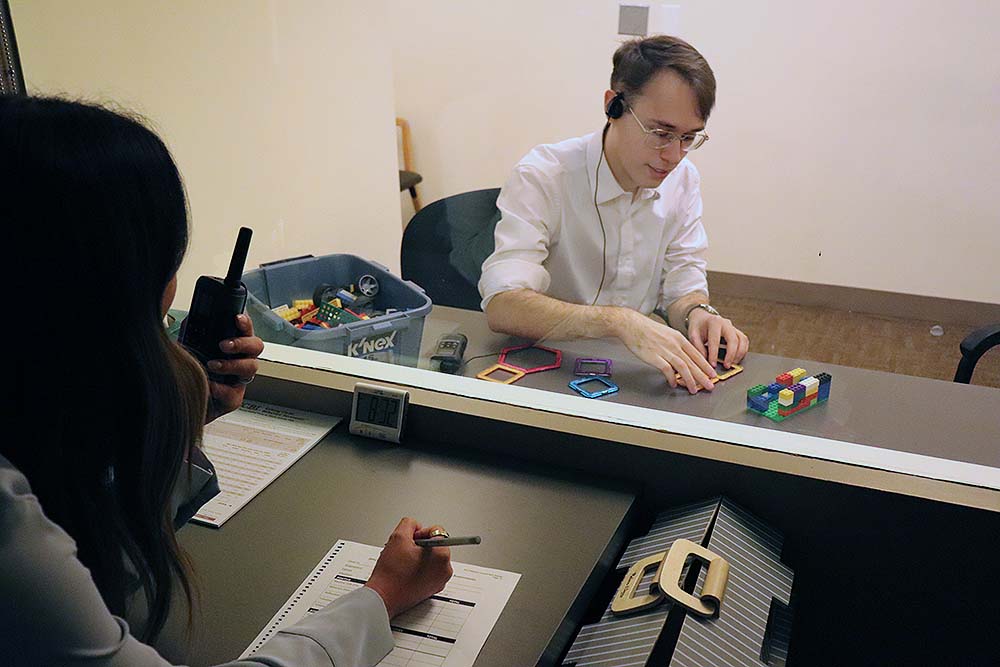What is PCIT?
Parent-Child Interaction Therapy (PCIT) is a specialized therapy program developed by Sheila Eyberg, PhD. It is designed to treat young children with behavior problems, such as defiance, aggression, or tantrums. PCIT involves working with parents and their young children to improve the quality and consistency of parent-child interactions, to improve child compliance, and to reduce disruptive behavior.
PCIT is the gold-standard treatment for disruptive behavior in early childhood. What distinguishes PCIT from other forms of treatment for disruptive behavior disorders is the active coaching component. While other forms of treatment involve education and instruction regarding effective parenting techniques, in PCIT parents practice these skills while receiving live, active coaching by their PCIT therapist.
PCIT is conducted in two phases. During the first phase, called Child-Directed Interaction, parents learn and then subsequently practice play therapy skills which are designed to enhance the parent-child relationship, improve children's social skills, and encourage positive behaviors, all while decreasing attention-seeking behaviors. The second phase, Parent-Directed Interactions, involves learning and practicing structured and effective techniques for disciplining child misbehavior. During this phase, parents learn how to give commands, use time-out as an effective punishment, and enforce the rules of their home.
PCIT is often a short-term treatment, with some families requiring as few as twelve 60-minute treatment sessions. Numerous research studies have shown strong evidence supporting PCIT as an effective and efficient treatment for children with disruptive behavior, with child behavior improvement remaining long after treatment has ended.
PCIT has been adapted to treat anxiety disorders and various other early childhood challenges. PCIT is also an evidence-based treatment for trauma and behaviors associated with autism spectrum disorder.
Adaptations of PCIT include:
PCIT CALM
- The CALM Program (Coaching Approach behavior and Leading by Modeling) was developed at CUCARD by Jonathan Comer, Ph.D., Anthony Puliafico, Ph.D., and Anne Marie Albano, Ph.D. It is an evidence-based cognitive-behavioral treatment used to address anxiety disorders in young children ages 2-7. PCIT CALM coaches caregivers to encourage and reward childrens brave behavior, while decreasing anxious avoidance.
Brave START
- Brave START (Skills Training & Anxiety Reduction Treatment) was developed by director of the ABC Program Steve Mazza, PhD, Phyllis Ohr, PhD, and Anne Marie Albano, PhD to help children that exhibit a combination of anxiety and disruptive behavior. Brave START combines elements of traditional PCIT and PCIT CALM to address co-occurring anxiety and disruptive behavior concerns.
Other adaptations
-
While the ABC Early Childhood Program specializes in PCIT for anxiety and challenging behaviors, other adaptations of PCIT have proven effective for a range of problems. Utilizing a live coaching approach for caregivers has proven effective to address various presenting problems in a variety of populations. Some other PCIT adaptations include:
- PCIT for Selective Mutism
- PCIT for Older Children ages 7-10 years old
- PCIT for children with Autism and other developmental disorders
- PCIT-Emotional Development for depression
To learn more about PCIT, visit the PCIT International website here.




